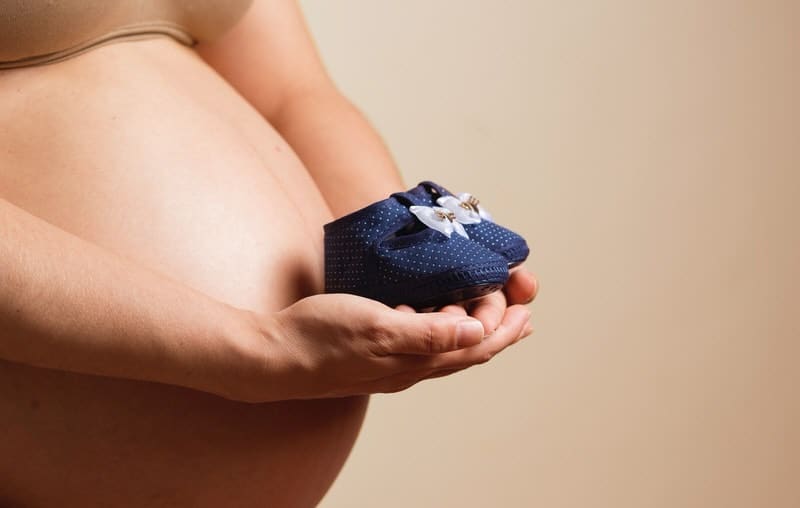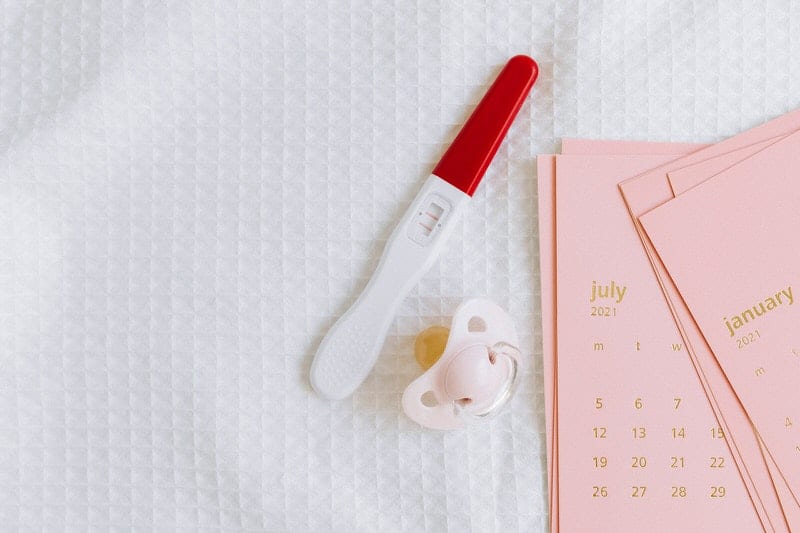Almost half the pregnancies on earth are unplanned. A only 57% of those decide to carry to term. The most critical side beside the psychological pressure is the financial cost.
With the heaps of ads targeting new moms and expecting families, it’s easy to feel you’re unable to have a child if you’re making less than $100,000 a year. However, the actual cost of having a baby is far from the advertised sum, and even a broke young family can afford it!
The good news? You have 9 months to figure out a way to afford to sustain yourself and the life you’ll bring to the earth. The bad news: you need to start acting immediately.
If you’re unemployed, get any kind of job that provides health insurance as soon as possible and put the earnings towards your baby fund. Ask your closest friends and family for second-hand maternity clothes and baby stuff; go thrift shopping for a stroller, car seat, and crib. Refer to the American Pregnancy Association for all the financial help resources you can use.
The Prenatal Costs
Growing a child is a very responsible task, and you must take great care of yourself. Prenatal vitamins, ultrasounds, lab work, and prenatal doctor’s visits can add up to over $2,000 if you’re uninsured. If you don’t have a job, are uninsured, and this amount is something you can’t manage, try to apply for Medicaid.
The Medicaid program grants financial help with health costs for low-income people, including pregnant women and children. To be eligible for Medicaid, you have to be a United States citizen and meet federal and state income and residency criteria.
The greatest thing about this program is pregnant women and infants don’t have to pay a cent for covered costs. But beware, if your household income is at or above 150% of the federal poverty level, you might be requested a fee.
Almost half of US employers don’t provide health insurance for their employees. So even if you’re employed, you might need to cover the prenatal costs out of pocket.
Childbirth Costs To Expect

Delivering a baby into this world is wildly expensive. Without insurance, a median for a natural birth with no complication is a little over $10,000. A C-section and additionally complicated birth can rank up the bill up to $30,000.
With insurance, the prices are almost 50% cheaper. But it depends on the state; in California, for example, natural birth with insurance is $7,755 and $13,947 without insurance. A C-section ranges from $11,390 to $19,184.
That’s an enormous amount, especially when you’re broke and have other baby-related expenses. While you can’t dodge this bullet, you can save up and negotiate your bill afterward.
How To Have A Baby On A Budget

Budgeting is the essence of personal finance and the pregnancy period is no exclusion.
To save some money, plan right and provide your newborn with the best care. Start with the essentials and make sure you’re planning for your wellbeing too.
Get An Extra Income
The average pregnancy is 40 weeks. So let’s say you find out around week 6; you still have over 30 weeks to bring some extra income, even if you already have a job.
Look for pregnancy-friendly gigs like freelance proofreading, writing, data entry, virtual assistance, etc. It can be something you get to pick up even after childbirth. A few work hours a week can bring you $100, which is over $3,000 until your due date!
Buy As Much Second Hand As You Can
Swallow your ego – things don’t always work out as we planned. Of course, every young family imagines the first pregnancy to be filled with sparkly, new things, but plans fail.
And to be honest, babies grow out of their clothes and stuff so fast; it’s a huge expense to be buying all new.
Babies need only 5 things: clothes, a place to sleep, a car seat, a swaddle blanket, and a bouncy seat.
Start with secondhand baby clothes and buy just enough for your first two months. After that, buying gender-neutral is your best choice; baby clothes get merely a few wears and can easily be used by the next baby.
If you’re short on money, don’t go looking for cribs; consider a pack’n’play. It’s easy to set up, move and all you might need is an additional mattress for as little as $80.
You can easily find a secondhand car seat on Facebook Marketplace, eBay, or Craigslist for half the price. A new one costs over $100.
Swaddle blankets can cost $5 to $70, while a bouncy seat is around $60.
Let Friends And Family Know Your Situation
It can be hard asking for help but keep in mind your inner circle will be glad to make this situation better. Ask friends with kids if they have anything you can use and return later.
You’ll be surprised at the amount of stuff they’ll give to you and save you hundreds of dollars!
For the things you must buy, ask them as a gift from your family. If you’re too short on money for throwing a baby shower, let your closest ones know, and they’ll ship you a present.
Stock Up On Diapers & Cosmetics
Diapers and baby cosmetics will eat up your budget after you bring your baby home, so it’s never too early to stock up on them.
During your last trimester, buy diapers anytime they’re on discount or come with a coupon. Consider using cloth diapers to save even more.
The baby’s skin is very sensitive and requires special cosmetics, which can be expensive. But on the bright side, babies are tiny and use a minimal amount at each bath. So don’t fall for widely marketed brands; instead, do your research and buy affordable and certified baby cosmetics.
Meal-Prep For Yourself
Cooking and grocery shopping while caring for a newborn is almost impossible, especially if you’re home alone.
Save money and be prepared with home-cooked meals that are freezer-friendly. During your last month of pregnancy, every time you cook, make two extra portions and freeze them. Then, your future self will be very thankful as well as your pocket!
Be Realistic
The struggle of being inferior is not an easy one, so be realistic about how you can manage your life with a baby. Try living on one income until the baby arrives; opt for the more frugal and minimalistic way of living.
It’s not as fun as buying every baby thing that appears on your feed, but it’s smart, responsible, and will pay off in the long run.
Federal Programs for Pregnant Women

Don’t be ashamed to ask for help. There are several federal programs designed to help struggling, low-income mothers and provide them with the necessities.
Most of them are government-funded, so you’ll need to apply through your state’s health department or agency. They also offer financial assistance for pregnant single mothers. Here are some of the programs you might be eligible for:
Women, Infants & Children (WIC) Program
This program provides education and nutritional food. You receive vouchers or cards for purchasing foods for yourself and the baby, like formula, fruits and vegetables, eggs, cheese, and more. You’re able to use them during your pregnancy and up to one year after you give birth.
Temporary Assistance for Needy Families (TANF)
TANF offers temporary financial aid and helps you find a job to sustain yourself. You can use the money to purchase groceries, pay bills, buy clothes, medicine, or pay rent.
Supplemental Nutrition Assistance Program (SNAP)
This is the former food stamp program that provides low or no-income families with debit cards for purchasing groceries. Eligibility varies depending on which state you’re in, but it mainly depends on how close you are to the federal poverty line.
Housing Choice Voucher Program
If you’re struggling to pay rent, you can get a subsidy through this program, They pay directly to your landlord, and you just fill in the difference.
Free Government Child and Daycare Assistance Programs
You’ll need a hand if you plan on going back to work or school, and this program is excellent. You must be working or studying at least 20 hours a week to be eligible. The vouchers are issued directly to the childcare and cover a part of the overall expense, and you’re responsible for paying the difference.
Religious Charities
Depending on your faith, you can ask your local religious organization if they have a program for helping your mothers. Catholic Charities, for example, provide counseling, baby items, and financial help.
Frequently Asked Questions
What Do You Get For Free When Pregnant?
The most common form of freebies is a goodies box when you sign up for a baby registry at Target, Amazon, Walmart, Babylist, and many more. In addition, you can get free diapers from the National Diaper Bank Network and formula by signing up to Enfamil Family or MyGerber.
How Much Money Should You Have To Have A Baby?
As a rule of thumb, you need to have at least $20,000 in savings when planning for a baby. Of course, the expenses vary; after birth, you can spend between $700 and $2,300 on baby-related costs.
What To Do If You Are Pregnant With No Money?
Budget what you have, try to get at least a part-time job, contact local charities, and find help paying for formula and food. Contact your health insurance provider and find out what’s covered and what’s not. Look for freebies from the government, brands, and stores.
Conclusion
The truth is you’re never fully prepared for having a baby. You could have saved more, learned more, got a better job, a better place to live. So making the best with what you have is very important.
So try to minimize the money stress and focus on making better decisions and taking good care of your newborn.
There are hundreds of people starting to pay off debt while being pregnant or switching to minimal spending. There’s something with being responsible for another individual that triggers the financially responsible mindset in parents.
When you’re set on a goal, you can make everything work in your favor. And there will always be help on the way.

